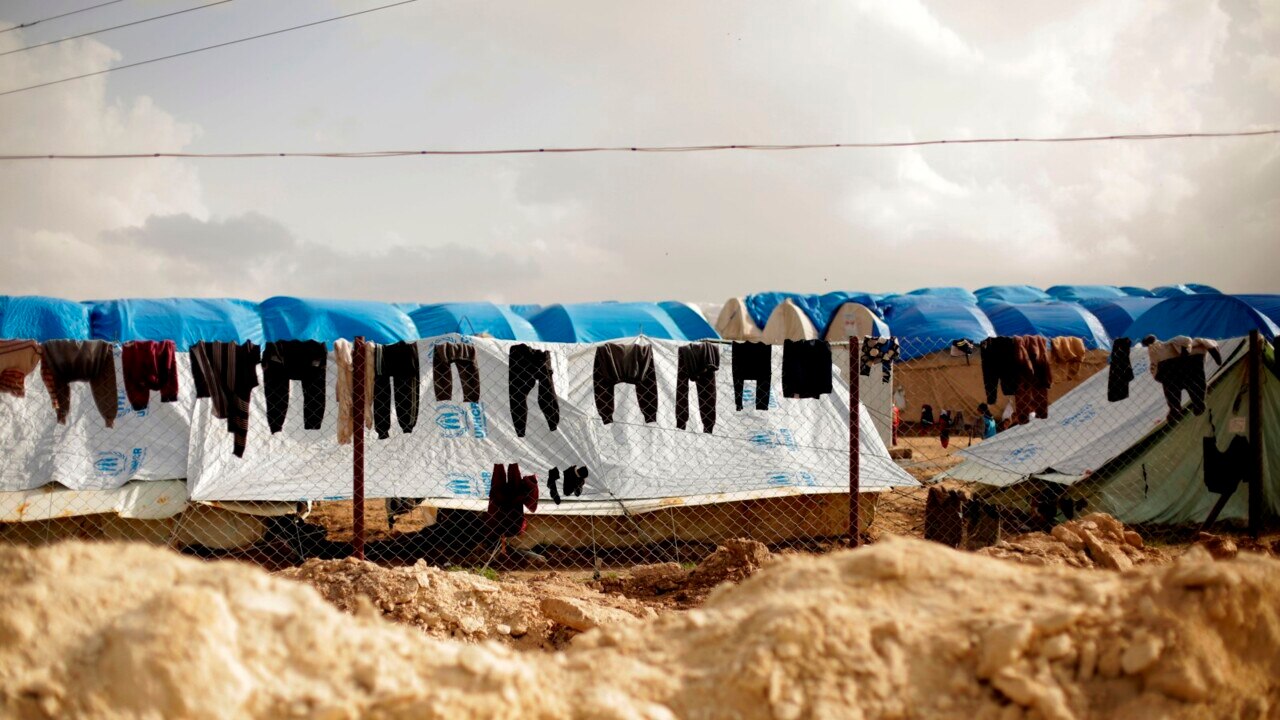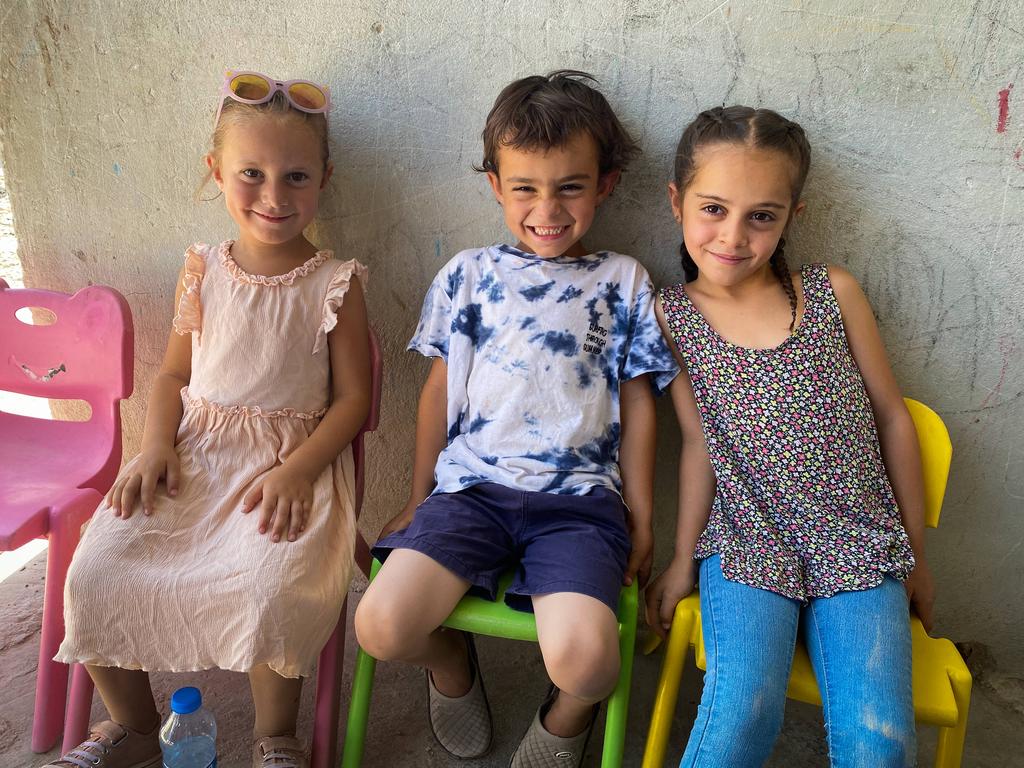Security fears won’t stop return of jihadi families
Cabinet’s national security committee will meet on Tuesday over the repatriation of Islamic State-linked families from Syria.

Cabinet’s national security committee will meet on Tuesday to discuss final details of the planned repatriation of Islamic State-linked families from Syria, as the government and opposition lock in for a political fight over their future.
The Albanese government is believed to be committed to repatriating up to 16 women and 42 children following risk assessments from ASIO agents who visited the camps in northeastern Syria where the families have been held for more than 3½ years,
While the security committee will talk about how the mission will be conducted, operational matters, including timing, will be left to the Department of Home Affairs, ASIO and the Defence Department.
Home Affairs Minister Clare O’Neil did not comment on Monday but Environment Minister Tanya Plibersek all but confirmed the rescue mission of the families, referring to “when they come back to Australia”.
Opposition home affairs spokeswoman Karen Andrews said she saw no benefit in returning the families.
“If I was still the minister for home affairs, these people would not be returning to Australia,” Ms Andrews said.
Her comments were far stronger than those made by her frontbench Liberal colleagues Angus Taylor and Dan Tehan, who both expressed reservations but did not outright declare that the families should not return home, and set the tone for a bitter dispute between the parties over the issue.
Opposition Leader Peter Dutton, who was opposed to the families returning when he was in government, did not comment on Monday.
The Australian revealed on Monday that a secret ASIO mission to Syria had cleared the way for the women and children to return in about three groups, with the most vulnerable to be prioritised. This will likely include families with very young children, and women who were trafficked or coerced into Syria by their parents or husbands.
Ms O’Neil’s office offered Ms Andrews a briefing on the plans late on Monday.
The news that Australia had reversed its three-year opposition to bringing the woman and families home was welcomed in Syria, where the de facto government, known as the Autonomous Administration of North and East Syria (AANES) has been lobbying for years for western nations to take their citizens home.
The AANES-aligned Rojava Information Centre tweeted that Australia and The Netherlands had both “announced that they are working on repatriating their citizens held in camps in NES (northeast Syria).’’
“Such repatriation missions are welcomed by AANES who have pressed the international community to take responsibility for their nationals,’’ the centre said.
As well as the 58 women and children held in al-Roj camp near the Iraqi border, a handful of Australian women and children still live in the dangerous al-Hol camp, close to the restive city of Hasakah. They are not being considered for repatriation at this time.
At least 11 Australian men linked to Islamic State are also known to have been held in the squalid prisons around Hasakah. The government is not considering repatriating them at this time. The only child who was being held in the youth annex of the prisons, Yusuf Zahab, 17, is believed to have died there this year.
Ms Plibersek said some of the women in the camps had been tricked into entering Syria, and were married off to Islamic State fighters when they were very young.
“When they come back to Australia, I think it’s going to be very important that the children in particular receive counselling,” Ms Plibersek told the Seven Network.
“But I think for everybody involved, there will be an ongoing expectation that our security and intelligence agencies will stay in contact with them and monitor them.’’

Ms Andrews, who was home affairs minister until the Coalition lost government in May, said she believed the return of the women, along with the 21 convicted terrorists due for release from jail in the next five years, would place an enormous strain on the Australian Federal Police, state police and intelligence agencies, which would be required to monitor them.
“They will have to up their funding to the Australian Federal Police,” Ms Andrews said.
She said terrorism control orders – to which all the women have volunteered to submit – were expensive and labour-intensive to monitor and would have an impact on the resources of state and federal police.
Ms Andrews said she was concerned about the ongoing risk the families could pose to Australians, and the risk faced by the officials who would travel to Syrian to bring the women and children home.
Independent senator Jacqui Lambie gave cautious support to the repatriation plan but warned intensive surveillance would be needed when the families returned.
Mr Taylor, the Liberal Treasury spokesman, warned the government “we can’t put Australian lives at risk’’ while Mr Tehan, the immigration spokesman, said more details were required on whether the women posed a risk.
A group of Australia’s leading aid agencies – Save the Children Australia, the Australian Council for International Development, UNICEF Australia, CARE Australia, Plan International, Amnesty International, Islamic Relief Australia and the Human Rights Law Centre – issued a rare joint statement welcoming news of the impending repatriation of the families, which includes up to four children who were born in the camps.
The groups said the news could pave the way forward for these Australian citizens, who have suffered immensely over the past three years, to return to their families and begin their recovery.

“The reported death of Australian teenager Yusuf Zahab earlier this year provided heartbreaking proof of the critical need for Australia to uphold its obligations under international law to repatriate the women and children stuck in Syrian camps,’’ the groups said.
“The first Australian children to be brought home, back in 2019, are reported to be now living normal lives in the community, attending school, and playing sport. A decision to repatriate the remaining children would provide them with the same opportunities.’’
The Australian understands about nine of the 16 women in al-Roj could face charges of entering a proscribed area – a charge that existed for a few years under the period of Islamic State to stop people entering the terror group’s strongholds of Mosul in Iraq, and al-Raqqa in Syria.
The charge carries a 10-year maximum jail term, but authorities expect any women charged would not receive lengthy jail terms, and would have to be monitored in the community.
A terrorism control order would require them to be fitted with ankle bracelets, and have their communications, internet usage and movements monitored.
Authorities are also working to keep the children with their mothers, or within the care of their extended families. All of the children have missed years of schooling or never attended school, and most are sick, malnourished, traumatised, and some are carrying war wounds including shrapnel injuries.
Muslim community leader Jamal Rifi told Sky News the repatriation was the best way to ensure the safety of Australian citizens. “If there is any one of them now, in the past or in the future that poses a risk, then we can put them through the court,” Dr Rifi said.






